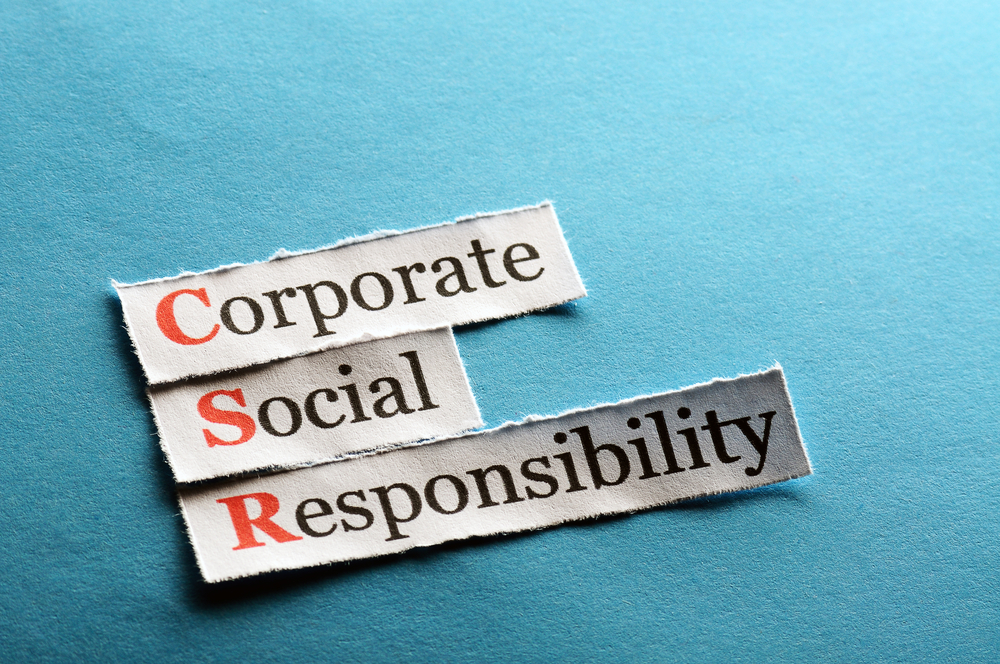REDWOOD LOGIN
Redwood PortalLTL
SCS
SCS Support
Rockfarm

Corporate Social Responsibility, or CSR as it is more commonly referred, is an important philosophy and operating standard to follow. And it is duly important for corporations who work directly with the public.
Sadly, this concept is one of the more overlooked. And if you ask people if they know exactly what it is or how it is practiced, you will probably just get a blank stare in return.
Before I start discussing why CSR is important, we need to answer one simple question; what is corporate social responsibility?
Well, Investopedia defines it like this: “Corporate social responsibility (CSR) is a self-regulating business model that helps a company be socially accountable — to itself, its stakeholders, and the public. By practicing corporate social responsibility, companies can be conscious of the kind of impact they are having. This includes their impact upon on all aspects of society including economic, social, and environmental.”
And there you have it… it is a concept that is all about creating transparency and goodwill through actionable changes.
Now that you have a better understanding of CSR, let’s discuss a couple of the major efforts that are being made right now to foster this concept throughout the logistics industry.
There are a lot of efforts on the rise in the past few years with a strict focus on good CSR practices. Better yet, this interest seems to span multiple industries.
The International Organization for Standardization is the group that promotes worldwide industrial, proprietary and commercial standards. It is this same organization that, in 2010, released a set of proposed standards aimed at helping companies achieve a high level of CSR.
These proposed standards are known as the ISO 26000. Now, I will warn you, this proposed standard is quite a lot to read through, nor is it inexpensive. But it does cover a variety of topics intended to further help companies adhere to a new, more socially-minded way. It asks that companies go above and beyond legal compliance when it comes to furthering international norms of behavior when it comes to the issues of societal, environmental, legal, cultural, and organizational diversity.
In this standard, you will find guidance on everything ranging from basic ethical behavior to community involvement and development.
It may be quite a lot to get on board with, and certainly would give a much-needed facelift to even companies in the logistics field, but it will take time. And that is understandable considering the fact that this was an effort put together after 5 years of negotiations taking place between numerous stakeholders worldwide.
CSR practices can benefit just about any industry or individual company.
But how does all of this benefit the shipping or logistics industry you ask? I mean, isn’t the shipping industry all about being fiercely competitive?
Yes, yes it is. But that doesn’t mean that we have to sacrifice our responsibilities, just to get freight down the road faster.
For instance, the European Commission states that almost a quarter of Europe’s greenhouse gas emissions and pollution is due to the transport industry. Back in 2007 these numbers decreased just a bit. However, it has still remained higher than the numbers we were seeing in the 90’s. And for the most part, it continues to stay right around the same level.
To counteract this, the transportation and shipping industry in Europe is trying to get on board with the idea of low-emission alternatives, as is the general public. By doing this, the country can lower its overall carbon footprint by midcentury if it is diligent in its efforts.
These efforts, in turn will lead to less fuel consumption. Additionally, it results in a higher percentage of co-loading while trying to reduce a large amount of paid-for empty mileage.
Besides cleaning up pollution and greenhouse gas emissions, CSR can benefit the industry on many other levels. But there are two main ones I want to touch on real quick.
CSR is also about keeping good relationships with your suppliers, employees, and customers. By implementing a solid CSR plan you can truly build your image as a corporation that works really well with others, keeps their employees happy, and actively engages transparently with its customers and other clients.
When you listen to your employee's needs and concerns, you build an enjoyable work culture. Talk to your employees, engage them on a personable level, don’t make them feel like just another random face. Give your employees purpose and fulfillment and they will grow your company for you.
We are living in a world that is consistently concerned with the state of politics, human rights, and transparency.
Standards that hold companies to a certain degree of responsibility outside of the basic things they must do legally are what make this industry what it is. We aren’t losing our competitiveness in the least… We are just playing on a different field now.